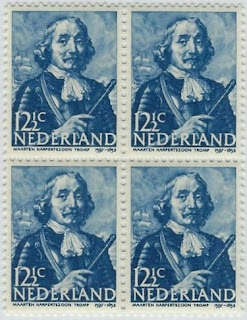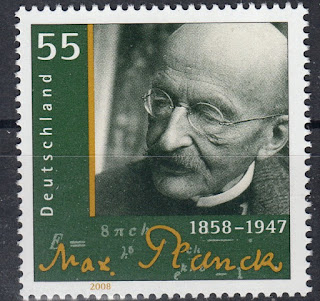Here are some events that happened on April 23rd. It could be an event or a person that died or was born on that day
1598 Born: Maarten Tromp, Dutch admiral (d. 1653)
Maarten Harpertszoon Tromp (also written as Maerten Tromp; 23 April 1598 – 10 August 1653) was a Dutch army general and admiral in the Dutch navy.
In 1637, Tromp was promoted from captain to Lieutenant-Admiral of Holland and West Frisia in 1637, following the dismissal of Lieutenant-Admiral Philips van Dorp, Vice-Admiral Jasper Liefhebber, and other flag officers due to incompetence. Although formally ranking under the Admiral-General Frederick Henry of Orange, he was the de facto supreme commander of the Dutch fleet, as the stadtholders never fought at sea. Tromp was mostly occupied with blockading the privateer port of Dunkirk. Both Tromp and Witte de With, who was named as Vice-Admiral, had been born in Den Briel and served as flag captains of Piet Heyn.
In 1639, during the Dutch struggle for independence from Spain, Tromp defeated a large Spanish fleet bound for Flanders at the Battle of the Downs, marking the end of Spanish naval power. In a preliminary battle, the Action of 18 September 1639, Tromp was the first fleet commander known for the deliberate use of line of battle tactics. His flagship in this period was the Aemilia.
In 1643 the subject was the center of a parliamentary investigation of naval intrigue with the Queen of England and the Prince of Orange who had allegedly instructed the Vice-Admiral to allow passage of two frigates purchased by English royalists in Dunkirk.
In the First Anglo-Dutch War of 1652 to 1653, Tromp commanded the Dutch fleet in the battles of Dover, Dungeness, Portland, the Gabbard and Scheveningen. In the latter, he was killed by a sharpshooter in the rigging of William Penn's ship. His acting flag captain, Egbert Bartholomeusz Kortenaer, on the Brederode kept up fleet morale by not lowering Tromp's standard, pretending Tromp was still alive.
Tromp's death was a severe blow to the Dutch navy but also to the Orangists, who sought the defeat of the Commonwealth of England and the restoration of the Stuart monarchy. Republican influence strengthened after Scheveningen, which led to peace negotiations with the Commonwealth, culminating in the Treaty of Westminster.
During his career, his main rival was Vice-Admiral Witte de With, who also served the Admiralty of Rotterdam (de Maze) from 1637. De With temporarily replaced him as supreme commander for the Battle of Kentish Knock. Tromp's successor was Lieutenant-Admiral Jacob van Wassenaer Obdam.
Dutch stamps depicting Maarten Tromp
1616 Died: William Shakespeare, English playwright and poet (b. 1564)
William Shakespeare (bapt. 26 April 1564 – 23 April 1616) was an English playwright, poet, and actor, widely regarded as the greatest writer in the English language and the world's greatest dramatist. He is often called England's national poet and the "Bard of Avon" (or simply "the Bard"). His extant works, including collaborations, consist of some 39 plays, 154 sonnets, three long narrative poems, and a few other verses, some of uncertain authorship. His plays have been translated into every major living language and are performed more often than those of any other playwright. They also continue to be studied and reinterpreted.
Shakespeare was born and raised in Stratford-upon-Avon, Warwickshire. At the age of 18, he married Anne Hathaway, with whom he had three children: Susanna and twins Hamnet and Judith. Sometime between 1585 and 1592, he began a successful career in London as an actor, writer, and part-owner of a playing company called the Lord Chamberlain's Men, later known as the King's Men. At age 49 (around 1613), he appears to have retired to Stratford, where he died three years later. Few records of Shakespeare's private life survive; this has stimulated considerable speculation about such matters as his physical appearance, his sexuality, his religious beliefs, and whether the works attributed to him were written by others.
Shakespeare produced most of his known works between 1589 and 1613. His early plays were primarily comedies and histories and are regarded as some of the best work produced in these genres. He then wrote mainly tragedies until 1608, among them Hamlet, Romeo and Juliet, Othello, King Lear, and Macbeth, all considered to be among the finest works in the English language. In the last phase of his life, he wrote tragicomedies (also known as romances) and collaborated with other playwrights.
Many of Shakespeare's plays were published in editions of varying quality and accuracy in his lifetime. However, in 1623, two fellow actors and friends of Shakespeare's, John Heminges and Henry Condell, published a more definitive text known as the First Folio, a posthumous collected edition of Shakespeare's dramatic works that included all but two of his plays. The volume was prefaced with a poem by Ben Jonson, in which Jonson presciently hailed Shakespeare in a now-famous quote as "not of an age, but for all time".
Stamps from the US and Great Britain depicting Shakespeare or his works
1858 Born: Max Planck, German physicist and academic, Nobel Prize laureate (d. 1947)
Max Karl Ernst Ludwig Planck (23 April 1858 – 4 October 1947) was a German theoretical physicist whose discovery of energy quanta won him the Nobel Prize in Physics in 1918.
Planck made many contributions to theoretical physics, but his fame as a physicist rests primarily on his role as the originator of quantum theory, which revolutionized human understanding of atomic and subatomic processes. In 1948, the German scientific institution the Kaiser Wilhelm Society (of which Planck was twice president) was renamed the Max Planck Society (MPS). The MPS now includes 83 institutions representing a wide range of scientific directions.
Some stamps from Germany, East Germany and Berlin depicting Max Planck









No comments:
Post a Comment